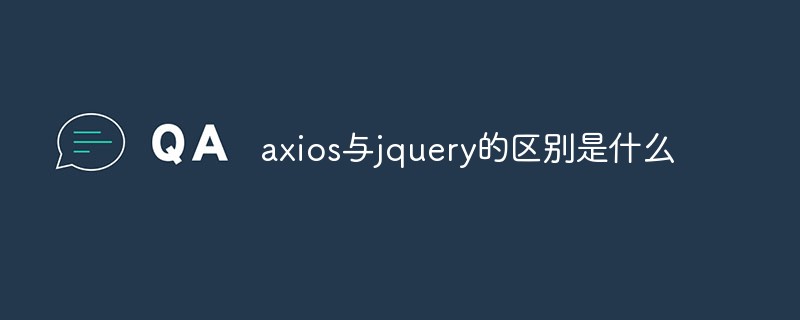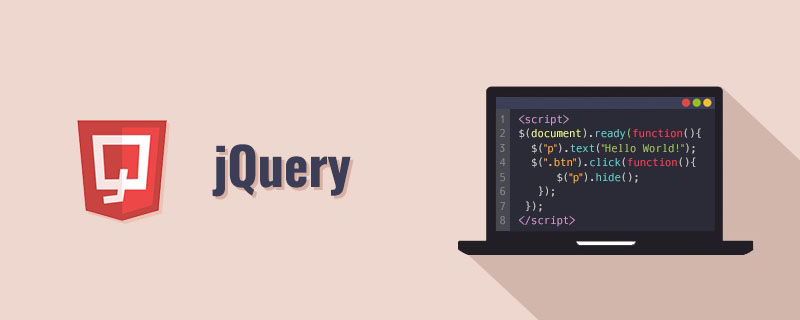Under normal circumstances, the onload of the body tag is set to listen to the load event of the window. However, the load event is not triggered until all elements of the page are loaded. If there are many pictures on the page or the pictures are too large, the initialization code will not be executed. When executed, the user has performed other operations. The Jquery library provides a very convenient and easy-to-use function ($(selector).ready()), which allows us to perform corresponding operations after the DOM of the page is loaded. (Of course, this depends on the support of the user's browser). Instead of waiting for all elements to be loaded. For example:
$(document).ready(function (){ alert('use in page script tag') } );
$(document).ready(function (){ alert('use in import js file') });
Now let us study the implementation of this function.
Principle:
When the jquery script is loaded, an isReady tag will be set to listen for the DOMContentLoaded event (this is not common in all browsers, and jquery operates differently in different browsers). Of course, when the ready function is called, if isReady Not set, which means that the page has not been loaded, and the functions to be executed will be cached in an array. When the page is loaded, the cached functions will be executed one by one.
Detailed code analysis in Jquery :
ready: function(fn ) {
// Bind listener
bindReady();
// If the DOM is loaded
if (jQuery.isReady)
// Run this function immediately
fn. call (document, jquery);
// Otherwise,
Else
// Add the function to the cache array
jquery.readylist.push (function () {RETURN FN.Call (this, this, this, this, this, this, this, jQuery); } );
return this; >
Copy code
var readyBound = false;
function bindReady(){
if ( readyBound ) return;
readyBound = true;
// Mozilla, opera, webkitnightlies support DOMContentLoaded Event
if ( document.addEventListener && !jQuery.browser.opera)
// Just use the event callback directly
document.addEventListener( "DOMContentLoaded", jQuery.ready, false );
// If it is IE and not embedded in a frame
// You need to constantly check whether the document is loaded
if ( jQuery.browser.msie && window == top ) (function(){
if (jQuery. error ) {
//// Mark this place and parse it later (2)
setTimeout( arguments.callee, 0 );
return;
}
// and execute any waiting functions
jQuery.ready();
})();
if ( jQuery.browser.opera )
document.addEventListener( "DOMContentLoaded", function () {
if (jQuery.isReady) return;
for (var i = 0; i if (document.styleSheets[i].disabled) {
. jQuery.ready();
}, false);
if ( jQuery.browser.safari ) {
var numStyles;
(function(){
if (jQuery.isReady) return;
if ( document. readyState != " loaded" && document.readyState != "complete" ) { // Mark(4)
numStyles === undefined )
numStyles = jQuery("style, link[rel=stylesheet]").length;
if ( document.styleSheets.length != numStyles ) { // Marker (5)
setTimeout( arguments. callee, 0 );
return; 🎜> }
// A fallback to window.onload, that will always work
jQuery.event.add( window, "load", jQuery.ready ); // Marker (6)
}
}
(1): This is mainly to measure the dom ready under IE. The principle is here http://javascript.nwbox.com/IEContentLoaded/, which can be used under IE. When the DOM has not completed parsing, call Document's document.documentElement.doScroll("left") will go wrong. This little trick can help you know whether the dom is ready.
(2):setTimeout(arguments.callee, 0) means delaying the call for 0 seconds. , in fact it will not be called immediately, but will be called as quickly as possible. It tells the browser to run the event handler for any currently pending events and complete the update of the current state of the document before calling it. Arguments.callee is It is an outer anonymous function, the caller of the parameter
(3): You may feel strange about this, why not handle it with mozilla? The reason is that after opera's DOMContentLoaded event occurs, its css style is not fully available yet , so special processing is required to determine whether each CSS tag is enabled.
(4), (5): When the status of document.readyState in Safari is loaded or complete, the CSS file has not been introduced yet. Determine whether it has been parsed, so you need to judge the number of css files
(6): Finally, if the above hacks are not supported...use the safest load event to ensure that the initialization code can be executed.
 jquery实现多少秒后隐藏图片Apr 20, 2022 pm 05:33 PM
jquery实现多少秒后隐藏图片Apr 20, 2022 pm 05:33 PM实现方法:1、用“$("img").delay(毫秒数).fadeOut()”语句,delay()设置延迟秒数;2、用“setTimeout(function(){ $("img").hide(); },毫秒值);”语句,通过定时器来延迟。
 axios与jquery的区别是什么Apr 20, 2022 pm 06:18 PM
axios与jquery的区别是什么Apr 20, 2022 pm 06:18 PM区别:1、axios是一个异步请求框架,用于封装底层的XMLHttpRequest,而jquery是一个JavaScript库,只是顺便封装了dom操作;2、axios是基于承诺对象的,可以用承诺对象中的方法,而jquery不基于承诺对象。
 jquery怎么修改min-height样式Apr 20, 2022 pm 12:19 PM
jquery怎么修改min-height样式Apr 20, 2022 pm 12:19 PM修改方法:1、用css()设置新样式,语法“$(元素).css("min-height","新值")”;2、用attr(),通过设置style属性来添加新样式,语法“$(元素).attr("style","min-height:新值")”。
 jquery怎么在body中增加元素Apr 22, 2022 am 11:13 AM
jquery怎么在body中增加元素Apr 22, 2022 am 11:13 AM增加元素的方法:1、用append(),语法“$("body").append(新元素)”,可向body内部的末尾处增加元素;2、用prepend(),语法“$("body").prepend(新元素)”,可向body内部的开始处增加元素。
 jquery怎么删除div内所有子元素Apr 21, 2022 pm 07:08 PM
jquery怎么删除div内所有子元素Apr 21, 2022 pm 07:08 PM删除方法:1、用empty(),语法“$("div").empty();”,可删除所有子节点和内容;2、用children()和remove(),语法“$("div").children().remove();”,只删除子元素,不删除内容。
 jquery中apply()方法怎么用Apr 24, 2022 pm 05:35 PM
jquery中apply()方法怎么用Apr 24, 2022 pm 05:35 PM在jquery中,apply()方法用于改变this指向,使用另一个对象替换当前对象,是应用某一对象的一个方法,语法为“apply(thisobj,[argarray])”;参数argarray表示的是以数组的形式进行传递。
 jquery on()有几个参数Apr 21, 2022 am 11:29 AM
jquery on()有几个参数Apr 21, 2022 am 11:29 AMon()方法有4个参数:1、第一个参数不可省略,规定要从被选元素添加的一个或多个事件或命名空间;2、第二个参数可省略,规定元素的事件处理程序;3、第三个参数可省略,规定传递到函数的额外数据;4、第四个参数可省略,规定当事件发生时运行的函数。
 jquery怎么去掉只读属性Apr 20, 2022 pm 07:55 PM
jquery怎么去掉只读属性Apr 20, 2022 pm 07:55 PM去掉方法:1、用“$(selector).removeAttr("readonly")”语句删除readonly属性;2、用“$(selector).attr("readonly",false)”将readonly属性的值设置为false。


Hot AI Tools

Undresser.AI Undress
AI-powered app for creating realistic nude photos

AI Clothes Remover
Online AI tool for removing clothes from photos.

Undress AI Tool
Undress images for free

Clothoff.io
AI clothes remover

AI Hentai Generator
Generate AI Hentai for free.

Hot Article

Hot Tools

SAP NetWeaver Server Adapter for Eclipse
Integrate Eclipse with SAP NetWeaver application server.

EditPlus Chinese cracked version
Small size, syntax highlighting, does not support code prompt function

Dreamweaver Mac version
Visual web development tools

Notepad++7.3.1
Easy-to-use and free code editor

VSCode Windows 64-bit Download
A free and powerful IDE editor launched by Microsoft






